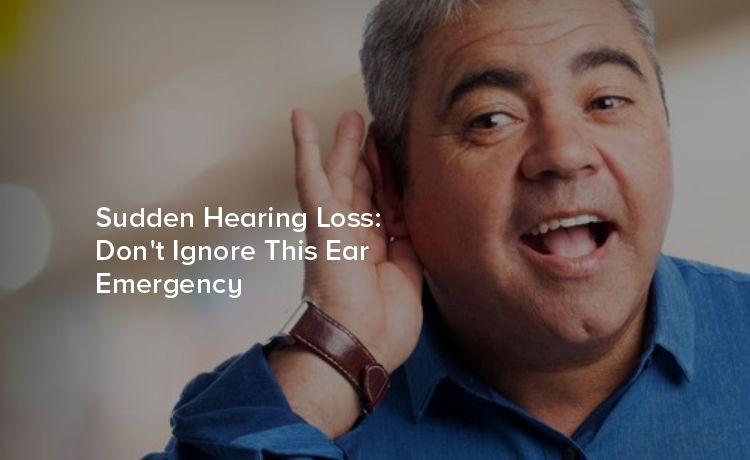
Hearing is a vital sense that connects us to the world. When we think of hearing loss, we often picture the slow, gradual decline that comes with age or exposure to loud noises. However, sudden hearing loss is not only real; it's an ear emergency that demands immediate attention.
Sudden hearing loss (SHL) is defined as a rapid decrease in hearing ability, typically in one ear, occurring over a period of 72 hours or less. While it can sometimes resolve on its own, SHL often signifies an underlying health issue that requires medical intervention. Prompt diagnosis and treatment can make all the difference in preserving your hearing.
It's easy to dismiss sudden hearing changes as temporary or inconsequential. However, doing so can lead to missed diagnoses and delayed treatment, potentially resulting in permanent hearing loss. If you experience sudden hearing loss, seek medical attention right away. Your doctor may refer you to an audiologist or an ear, nose, and throat (ENT) specialist for further evaluation and management.
The primary symptom of sudden hearing loss is, of course, a rapid decline in hearing ability. However, there are often accompanying signs that can help in diagnosis and understanding the severity of the condition. These include:
If you notice these symptoms, don't hesitate to seek medical advice. Early intervention is crucial in managing sudden hearing loss effectively.
If you experience sudden hearing loss, your healthcare provider will likely perform a series of tests to determine the cause. These may include:
The treatment for sudden hearing loss varies depending on the underlying cause. Some common approaches include:
For those who experience sudden hearing loss, adjustment and coping strategies can be essential. Here are a few ways to manage daily life with this condition:
Hearing Aids: If your hearing loss is permanent, hearing aids can significantly improve your quality of life by amplifying sounds and enhancing communication.
Assistive Listening Devices:These include devices that help improve sound clarity in specific situations, such as using a microphone to transmit speech directly to a headset.
Cochlear Implants: For those with severe hearing loss who cannot benefit from hearing aids, cochlear implants may be an option. These electronic devices bypass damaged portions of the ear and directly stimulate the auditory nerve.
Speech Therapy: Working with a speech therapist can help improve communication skills and strategies, particularly for individuals who have lost their hearing suddenly.
If you experience any sudden changes in your hearing, especially if accompanied by other symptoms such as dizziness or ringing in the ears, it's crucial to seek medical attention promptly. Your doctor can evaluate your condition and determine the appropriate course of action based on your individual needs.
While not all cases of sudden hearing loss can be prevented, there are several steps you can take to protect your hearing health:
Stay Healthy: Maintain a healthy lifestyle through regular exercise, a balanced diet, and adequate sleep. These factors can contribute to overall ear health and reduce the risk of certain medical conditions that may lead to hearing loss.
Manage Stress: High levels of stress can negatively impact your overall health, including your hearing. Practice stress-reducing techniques such as mindfulness, meditation, or yoga to promote relaxation and well-being.
Protect Your Ears: When exposed to loud noises, wear ear protection to minimize the risk of noise-induced hearing loss. Avoid prolonged exposure to high-volume music or machinery without appropriate hearing protection.
Get Regular Check-ups: Regular visits to your healthcare provider can help identify potential health issues early on, reducing the risk of sudden hearing loss associated with specific medical conditions.